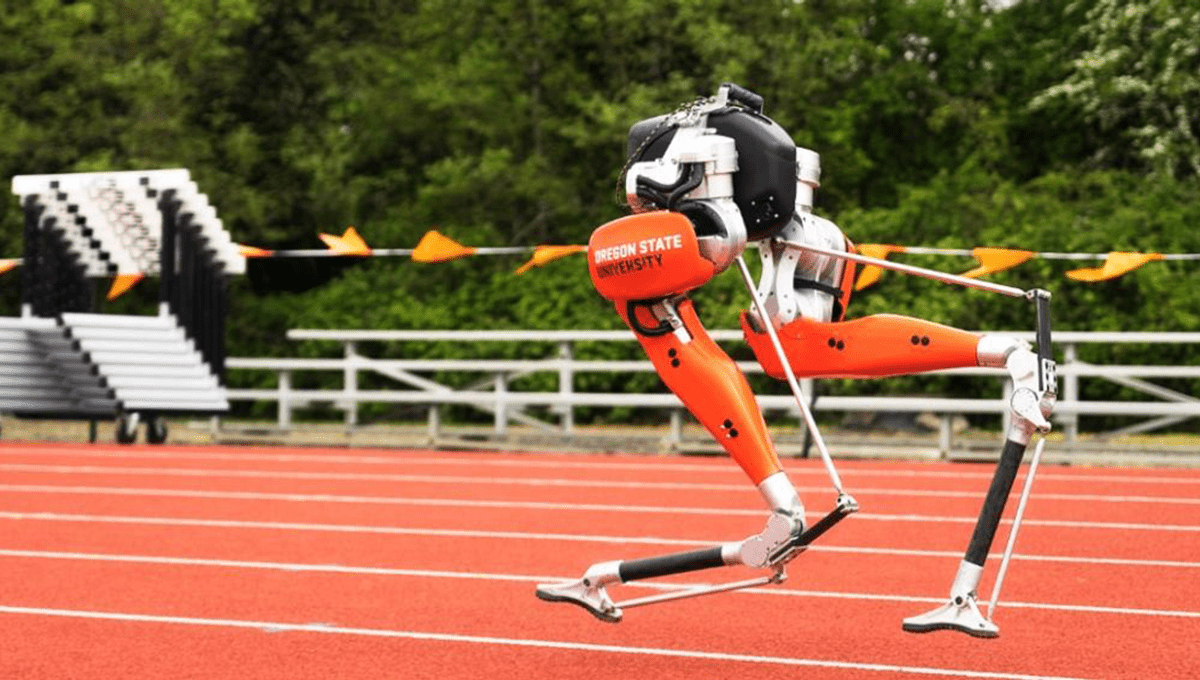
A robot created by the Oregon State University College of Engineering has set a new world record for the fastest 100-meter sprint by a bipedal robot.
Cassie, which was developed using a $1 million grant from Defense Advanced Research Projects Agency (DARPA), used knees that are designed to bend like an ostrich to achieve a new robot land speed record. The machine-learning robot has been training hard, spending the equivalent of a year in a running simulation environment squashed into a week by having it go through many training experiences simultaneously using a computer technique called parallelization.
The team had been optimizing Cassie for long distances, focusing on endurance, but they began to wonder what the robot’s top speed was. After a lot of tweaking, that turned out to be the fastest bipedal robot speed in the world, clocking in the 100-meter dash at 24.73 seconds.
“Cassie can perform a spectrum of different gaits but as we specialized it for speed we began to wonder, which gaits are most efficient at each speed?” graduate student Devin Crowley, who led the world record attempt, said in a statement. “This led to Cassie’s first optimized running gait and resulted in behavior that was strikingly similar to human biomechanics.”
Cassie is effectively running blind, with no camera or external sensors to show it where it’s headed. The tricky part, however, is getting the robot to start and stop.
“Starting and stopping in a standing position are more difficult than the running part, similar to how taking off and landing are harder than actually flying a plane,” artificial intelligence professor Alan Fern said. “This 100-meter result was achieved by a deep collaboration between mechanical hardware design and advanced artificial intelligence for the control of that hardware.”
The problem was that the neural network that controlled the robot was specialized for speed, and was not able to make it start from a free-standing position. To work around the problem, the team created a second neural network that could make the robot stand still, then had control of the robot transition between the two during the sprint, sort of like a relay but the baton is control over your own legs.
Awarding the team the record, Guinness World Records said it was a “concrete milestone in robot locomotion and real-world capability.”
Source Link: Robot Wins World Record For 100m Sprint With Time That Would Embarrass Human Athletes